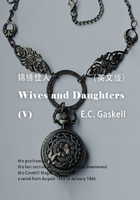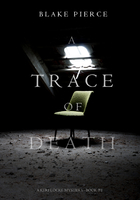DEFENDER OF TRINITY
So far as anyone can tell, no congressman prior to Charlie Wilson had ever moved unsolicited to increase a CIA budget. From the beginning of the Cold War, Congress had granted that exclusive right to the president. But as dramatic as the doubling might sound, it had no visible impact on the war. It wasn't reported or debated, and it never even registered on the KGB's radar screen in Russia. At best, all it did was provide the mujahideen with a few thousand more Enfield rifles and perhaps some machine guns, so that they could go out and die for their faith in greater numbers.
Wilson's intervention had not cost the congressman much more than a telephone call to a key staffer and a few additional minutes when the subcommittee met to appropriate the nation's secret intelligence budget. The truth is, it was an impulsive action, a personal gesture to bolster a painfully inadequate U.S. program.
Wilson so easily crossed the line into this covert arena that no one stopped to question his right to be there or worry about the precedent he might be setting. It would be another two years before he would return to put this precedent to the test. But this is where, quite impulsively, he first demonstrated that there could be another power center in the American government, one that could act in a way that was totally unpredictable to drive a U.S. covert policy.
For a moment, a very different Charlie Wilson had surfaced—a master politician able to find tools that could be used in ways that others would not have considered. But it had all taken place behind closed doors, and just for a fleeting moment. Before anyone could notice, the congressman had resumed the inexplicable role he had chosen for himself as a hopelessly irresponsible public servant.
The truth is, there were always two Charlie Wilsons at work in Washington. But he was moving heaven and earth in those days to allow only one image to surface, and to promote that image so loudly that no one would go looking for the other. To begin with, he staffed his office almost exclusively with tall, startlingly beautiful women. They were famous on the Hill, known to all as "Charlie's Angels." And to his colleagues' amazement, whenever questioned about this practice, Wilson invariably responded with one of his favorite lines: "You can teach them how to type, but you can't teach them to grow tits." That was the way he tended to present himself in public, which was tame compared to the way he decorated his condo. It was almost a caricature of what Hugh Hefner might have designed as the ultimate bachelor's lair. Manly hedonism was the theme, down to the last detail: mirrored walls, an emperor's size bed outfitted with plush down pillows and a royal blue comforter, an entertainment center featuring a giant television and stereo, and a gleaming tanning bed to maintain his year-round tan. Finally, the congressman's most distinctive innovation: the Jacuzzi, not hidden away in the bathroom but so deliberately situated in the center of the bedroom that it forced the unsuspecting eye to draw all the worst possible conclusions about the man who slept in this room. Particularly when visitors came close and discovered silver handcuffs dangling elegantly from a hook within easy reach of the tub. The site of these instruments of hedonism invariably left his colleagues and distinguished guests speechless.
It would be an exaggeration to suggest that this was all a false front. Charlie Wilson, after all, is a bona fide hedonist. But he is also guilty of concealing his other identity. It's only when he's alone and everyone else is sleeping that the other Charlie Wilson surfaces. It's a nightly affair. Usually at about three or four A.M. he finds himself awake and turns to his library, with its thick volumes of military history. He's not like other insomniacs, who simply try to get back to sleep. He reads like a scholar steeped in his field but also like a man in search of something personal, poring through accounts of the struggles of the world and the men who counted—Roosevelt, Kennedy, and all the great generals.
But invariably, it is to the biographies and speeches and histories of Winston Churchill that Wilson always returns on these night journeys, to read again and again about the man who was cast into the political wilderness, written off as an alcoholic alarmist, and then, when all was lost, rose to the occasion to save his country and his civilization from the darkness of Hitler. It's no wonder that Charlie Wilson never shared his sense of personal destiny. It wouldn't have made much sense in his year of the hot tub had he even whispered of his inner conviction that he and Winston Churchill might have something—anything—in common.
Nor did he explain why the painting over his bed, his one steady nightly companion, was like a talisman to him. The painting—a lone pilot in the cockpit of a Spitfire, patrolling the night skies of London—had hung over his boyhood bed in tiny Trinity, Texas, at a time when the Nazis were sweeping across Europe. Night after night, on the second floor of the white frame house, in the corner room that Charlie shared with his uncle Jack, the boy would sit staring out the window, ever vigilant, searching the sky for signs of Japanese bombers and fighter planes, whose characteristics were burned upon the memory of this seven-year-old defender of Trinity. "They aren't coming, Charlie," his kindly uncle Jack would assure him. "But if they do, you'll be the first to see them."
There was nothing distant or unfamiliar about World War II for the citizens of this timber town along the railroad tracks in deep East Texas. Every night, not just Charlie and his family but everyone in Trinity gathered around their radios to find out how the war was going, knowing that everything rested on the outcome. When the Japanese struck at Pearl Harbor on December 7, 1941, Charlie Wilson, age eight, sat in the living room of the white frame house across from the Methodist church and listened to Franklin Roosevelt describe the "day of infamy." The young boy with the huge imagination had already become obsessed with the war and with the magical voices coming out of the RCA radio: Roosevelt with his fireside chats, Murrow from London under the Blitz, and particularly Winston Churchill. It was a voice from far away, heard on a radio in a tiny town in the back of beyond. But those ringing, defiant words of Churchill, mocking Hitler and infusing a nation with the will to fight on, no matter what the cost, never to be conquered, would leave Wilson forever struck by the power of one man's spirit to change history.
Young Charlie began reading everything he could find about war, saving his money to send away for a giant American flag from Sears Roebuck, which he draped from the front of the house each morning. He bought a Canadian Mountie's uniform and insisted on wearing it every day. He tried to stage mock battles with his friends, but no one would play the role of the Nazis or the Japs.
All of Trinity was transformed by the war. Everyone gathered scrap metal for the cause, even the aluminum foil that wrapped chewing gum. Charlie's mother prepared bandages, and he and his friends helped assemble medical kits, putting their names and addresses inside. It was a great event when a soldier wrote back to thank them and report that he had used their kit after being wounded.
Every soldier from Trinity had his picture in the window of the local drugstore. There were eighty or ninety of them, and whenever one would return, wounded or discharged, Charlie would sit at his feet at the soda fountain and listen to his stories.
Often he even saw the true face of the enemy close up. The War Department maintained a huge prisoner of war camp just seven miles from Trinity at a railroad depot called Riverside. Trains would unload German prisoners, who would then march three miles to the POW camp. As Wilson remembers, "It was a great treat in 1943 when the town doctor drove me to Riverside to watch the men of the Afrika Korps being unloaded—these were Rommel's troops. Those sons of bitches were goose-stepping off of the train with great pride and arrogance in the very uniforms in which they were captured." The sight of goose-stepping Nazis burned deeply in the boy's consciousness. He had now seen the enemy. There they were—Hitler's men just ten miles from Trinity.
The young Wilson began going to the library each day to read up on weapons systems. He felt particularly menaced by the Messerschmitts, the German fighter-bombers that had savaged London. And he truly believed that Trinity might be next. "In the post office they had posters of all the Japanese and German airplanes, so we could spot 'em if they ever came over. Well, we had a little sawmill in Trinity, and all of us figured out it was probably a major target of the Japanese." Night after night, little Charlie Wilson would go to the window and scan the skies, Trinity's first line of defense, ready to spring at a moment's notice to alert the sheriff to a surprise attack.
The Japanese finally surrendered. While his mother played the piano at a service of thanksgiving at the Methodist church on V-J Day, the eleven-year-old boy was permitted to climb into the steeple to ring the bells in triumph.
Most boys his age did not follow the menacing transformation of America's World War II ally the Soviets. Wilson had been thrilled when Stalin's forces had turned back the Nazis at Stalingrad in late 1942. But with increasing alarm, he read and listened to the accounts of Stalin gobbling up Eastern Europe. When Churchill came to America in 1947 and warned of an "iron curtain" falling over Europe Charlie took his words to heart, and when the Communists tested the bomb Wilson was depressed for days, convinced that America had a new enemy every bit as dangerous as Hitler.
This was the early shaping of an American patriot and, for Wilson, just the beginning of a lifetime fascination with war, weapons, public service, and something else—a curious conviction that didn't come to him all at once but grew with greater and greater force and clarity as the war unfolded and the voices over the radio began to deliver a separate message to Charlie. As time went on, he would come to feel that one day, his would be the voice on the radio.
Wilson's father was an accountant for the timber company. They had little money but were better off than most people in town. They lived in a pleasant house and were pillars of their community. Charles Edwin Wilson had almost known despair when the mill closed down during the Depression and he was laid off. But the next day he had signed on with Franklin Roosevelt's New Deal jobs program, the Civilian Conservation Corps, where he worked as a roads supervisor, intensely proud of the fact that he had never missed a day's work.
Wilson's father had one fixed ambition for his son: to attend the U.S. Naval Academy. He insisted it would be a ticket to success. And so he lobbied his local congressman and, after two tries, got his son an appointment to Annapolis. Charlie flunked the first test because he was so scrawny. The second he passed only after wolfing down fifteen bananas, to bring his six-foot-four-inch body up to the academy's 140-pound minimum.
In September 1952 Wilson's proud parents drove their boy to Houston in the family's new Chevrolet and put him on a TWA flight for his trip across the country. Wilson remembers his first plane ride on the propeller-driven Constellation, which delivered him to the start of his military career. Wilson and his fellow midshipmen in the starting class of two thousand were warned that less than half of them would graduate; and over the years, it was always touch-and-go whether Charlie would make the cut. He was a classic military screwup, constantly reprimanded for talking in formation, not having his shoes shined, leaving his light on after curfew. But somehow he made it through, in 1956 graduating eighth from the bottom of his class and with the distinction of having more demerits than any other graduate in anyone's memory.
Because of Annapolis, Wilson missed Korea. But at twenty-five, as a gunnery officer on a destroyer sailing the world with the American fleet at the height of the Cold War, he felt that he was at last coming into his own. He was in command of the warship's weapons, and his gunnery teams almost always won the mock battles, in part because he had his men practice more than anyone else. They always ran out of ammunition long before they could get back to their home port to be resupplied. Wilson did this to sharpen his men's skills, but also to empty the ammo boxes so that he could fill them with cheap alcohol bought on shore leave in Gibraltar to smuggle back to the States. Wilson's training style was unconventional, but he ended up with the happiest men and the best shots in the fleet.
Wilson was now feeling the power of America, moving about sometimes with the entire U.S. Atlantic fleet and other times with NATO naval units. "We were undisputedly the kings of the world, and everybody knew it. We were arrogant sons of bitches. But they loved us." He sailed everywhere in those years—to Athens, Marseilles, Naples, Karachi, Beirut—and everywhere he went he felt proud. America was rebuilding Europe through the Marshall Plan, the dollar was powerful, and there was more than a woman in every port for the smiling, open-faced, fun-loving young officer in the starched white uniform.
There were also long stretches of downtime at sea that Wilson put to good use, reading all of Churchill's wartime books, consuming each as they came out and moving on to biographies of Roosevelt and George Kennan's prescription for dealing with Communism.
From his destroyer on Christmas morning 1956, he wrote to his parents and kid sister, evoking the same spirit that had led the young boy to keep vigil at his bedroom window in Trinity, scanning the sky for enemy Messerschmitts.
Dear Mother, Daddy and Sharon:
It's now 5:15 a.m. Christmas morning. I have the 4 to 8 watch so I am up bright and early as always on Christmas. This will be my third duty day in a row as I am standing by for some of the married fellows so they can be with their families.
This business of being away from home today is certainly not by choice, but neither is it something without reason. I can console myself and I hope you too, by simply realizing that we are doing a job here that must be done. It is only through constant vigilance on the part of the few that a secure, peaceful Christmas can be enjoyed by many.
These read like lines for a Jimmy Stewart character, but the sentiments were very much Wilson's own. In later life he would usually disguise such nakedly idealistic thoughts. That letter, however, without any hint of self-consciousness, is key to understanding Wilson's later compulsion to be the lone cowboy sounding the alert, mobilizing "the forces of freedom."
Patrolling the seas during those Cold War years, Wilson came personally to feel the menace and reach of Soviet power. His destroyer spent most of its time chasing the Soviet submarines that hounded the fleet. The destroyers purposefully badgered them with mock attacks, forcing them under for days on end. The great triumph would come when, after two or three days of pursuit, a sub would finally be forced to surface. The Americans would snap photos of the disgraced Russians and give them the finger, while the enemy would shake their fists in return. "I always kept my depth charges on total alert," Wilson recalls with bravado. On more than one occasion, the young gunnery officer appealed to the ship's captain to permit him to blast one of the subs. "I promised a clean kill," Wilson recalls. "Nobody would have ever known what happened to the fuckers, but they wouldn't let me do it."
After three years at sea chasing Russian submarines, Wilson was assigned to a top secret post at the Pentagon, where he was part of an intelligence unit that evaluated the Soviet Union's nuclear forces. Having chased Soviet submarines, he now found himself rehearsing for all-out nuclear war. Back then, the U.S. response time to an incoming Soviet nuclear attack was thirty-five minutes. There were frequent simulated attacks, and Charlie often stood in for the top generals, who had only seven minutes to dive into waiting helicopters to be flown to the "Rock," the secret underground bunker carved into a Maryland mountain. "I would be sitting there where the button is, and if you're twenty-seven, it makes you feel very cocky knowing that here's Moscow, and here's Kiev, and if they fuck with us I'll just hit all these buttons."
In spite of his bravado, the experience was sobering. Day after day he confronted the reality of an enemy he knew was rehearsing America's nuclear destruction, and he resented it. It became a lifelong obsession to bring down this evil power. And all of his idealism and patriotic passions, which had been building since childhood, suddenly found an inspirational outlet when John Kennedy launched his campaign for the presidency.
Kennedy appealed to every aspect of the young naval officer's imagination: a war hero, he was a dashing, handsome idealist rallying the country to greatness and making it all look like fun. After work each day, hours spent studying the Soviet intercontinental ballistic missile threat, Wilson would rush from the Pentagon to the Kennedy campaign headquarters, where he volunteered. Like so many others of his generation, Wilson became caught up in the aura of romance that Kennedy lent to public service.
It's not legal for active-duty servicemen to campaign for public office, but Wilson decided to disregard that detail. He took thirty days' leave from the navy and entered his name in the race for Texas state representative. Tall and skinny, always dressed in a suit, Wilson ran his campaign in East Texas the way the Kennedys had made famous in Massachusetts. His mother, his sister, and all their friends went door to door selling the idea of Charlie as a fresh, new idea in Texas politics. He won and managed to complete his Pentagon tour without anyone noticing his entry into the political arena. In 1961, at twenty-seven, he was sworn in to office in Austin, Texas, the same month his political role model became the thirty-fifth president of the United States.
For the next twelve years Wilson made his reputation in Texas as the "liberal from Lufkin," viewed with suspicion by business interests. He battled for the regulation of utilities and fought for Medicaid, tax exemptions for the elderly, the Equal Rights Amendment, and a minimum-wage bill.[1] Historically, the Second District congressional seat had been a hard place for a liberal Democrat to seek office. It was an ultra-right-wing political franchise, made famous by Martin Dies, a red-baiting inquisitor who had unapologetically forced child actress Shirley Temple to testify about her supposed knowledge of Communists in Hollywood. But fortune knocked when Dies's successor, the incumbent congressman John Dowdy, was caught taking a bribe. Wilson immediately threw himself into the special election, in spite of a recent arrest for drunk driving and its attendant highly embarrassing mug shot. By that time he had become something of a legend in Austin as a hell-raiser, and his opponent capitalized on this, papering the district with blowups of the mug shot of the unmistakably inebriated Wilson and the question "Do you want this man to represent you in the U.S. Congress?"
In spite of this, Charlie won, demonstrating the intuitive understanding of and bond with his Bible Belt constituents that would allow him to hold onto their support through the many scandals that lay ahead. Unlike other politicians, Wilson never tried to hide his failings from his constituents. In fact, he seemed almost to turn his innocent sins to his advantage. Time and again it seemed that the voters of the Second Congressional District would forgive him almost anything if he was honest with them. What they hated was hypocrisy, and whatever his shortcomings, Wilson was no hypocrite. There was, perhaps, one other reason why the dour, supposedly puritanical voters chose to make Charlie Wilson their representative: the Second District can be a deadly boring place except when Charlie was there. People couldn't help but like and forgive this boyish politician who always made them feel good whenever he entered a room.
During the 1960s and '70s, as he built his political base in East Texas, Wilson could never shake the feeling that he had cheated his country by not giving the twenty years of military service expected of Annapolis men. He had been too young to serve in World War II, he had been at the Naval Academy during Korea, and when it came time for Vietnam he found himself as a freshman congressman reluctantly voting against the war. As he saw it, America's South Vietnamese allies just weren't willing to fight, and for Charlie Wilson, that meant they weren't worth backing. In those days it was very much in the mainstream for a young liberal Democrat to vote against the war. But it always made him feel a bit like a traitor.
Wilson's first serious entry into the arena of U.S. foreign affairs came in his first year in office in 1973, when he discovered the cause of Israel. U.S. ambassadors and assistant secretaries of state, national security advisers, and CIA directors would invariably be puzzled by what prompted Wilson to take up the curious causes he chose to champion. Often they would suspect the basest motives—outright payoffs or some other ulterior temptation. The real explanation begins with his mother, Wilmuth.
Wilmuth Wilson was a woman of conviction. In Trinity, Texas, a conservative southern community, she was the town liberal and a force to be reckoned with. A mainstay of the Democratic Party and a pillar of her church, she stood out as a fearless defender of the rights of Trinity's black citizens. "I suspect ours was the only house in town where the word nigger wasn't used," Charlie remembers. She openly befriended blacks, and throughout the Depression, when hoboes and tramps would come to the back door to see if they could sharpen knives in exchange for a meal, Wilmuth would always send Charlie to talk with them, telling him that they were good people just down on their luck. "Always," she told her young son and his kid sister, Sharon (who would go on to become chairman of the board of Planned Parenthood), "always stand up for the underdog. If you're ever in doubt, back the underdog."
As corny as it may sound, the lesson took. It certainly helps to explain why, two years before he was elected to Congress, Charlie Wilson was the only person in Lufkin, Texas, who subscribed to the Jerusalem Post. He made this unusual move immediately after reading Exodus, Leon Uris's novel about the founding of the modern state of Israel. It was the ultimate story about worthy underdogs, the kind Wilmuth had taught him to honor.
Wilson had been in Congress only a few months and had just won a seat on the Foreign Affairs Committee when Egypt, Syria, Jordan, and the combined forces of the Arab League launched a surprise attack on Israel during the Jewish holiday of Yom Kippur. For a few days, as Wilson followed every news account, he thought the Arab forces might actually overrun the Jewish state. At one point he became so concerned that he put in a call to the Israeli embassy, asking the switchboard operator to connect him with someone who could brief him about the war.
In Washington during those days, the Israeli embassy was a center of remarkably effective intrigue. Its mission was to support the survival of Israel by ensuring the billions in economic and military assistance that the United States gives each year. Jewish congressmen and senators were natural allies and visited regularly. So, too, were elected officials with many Jewish constituents. What made the call from Charlie Wilson to the embassy's congressional liaison officer, Zvi Rafiah, so unusual was that Wilson is not Jewish and had virtually no Jews in his district.
Rafiah is a very short, very smart Israeli who Wilson always believed was a highly placed Mossad agent. He was used to dealing with all sorts of people, but he says he has never encountered anyone like Wilson. To begin with, Rafiah was not accustomed to having congressmen or senators come to him; they always summoned him, and he would appear at their offices armed with charts, maps, slides, military attachés, and ministers.
Wilson's arrival an hour after his call startled Rafiah. He was wearing cowboy boots and a Stetson and from the perspective of the five-foot-six Rafiah, the congressman looked like a giant. But what surprised the Israeli most was Wilson's impressive command of military history and his keen understanding of weapons and tactics. Rafiah quickly realized that Wilson had developed a powerful identification with the Israeli cause, and when the congressman said he wanted to go to Israel immediately, Rafiah was quick to accommodate.
Three days later Wilson was driving in a jeep in the Sinai with fellow representative Ed Koch. The Israeli army was taking them to the front of the Yom Kippur War, sweeping them past still burning Soviet tanks. He was ecstatic to be in the presence of these heroic warriors. It was the beginning of a ten-year love affair with everything to do with Israel. "I bought the whole thing—the beleaguered democracy surrounded by Soviet-armed barbarians—survivors of Nazi concentration camps—David versus Goliath."
Wilson would go on to become one of Israel's most important congressional champions: a non-Jew with no Jewish constituents. Years later Zvi Rafiah would muse on this curiosity: "I visited his district once, and I was very impressed with the oil pumps and the big fat cows lying in the shade. Every time I describe a rich country, I describe this scene in Lufkin—the cows in the shade of the oil pumps. But believe me, there are no Jews in Lufkin."
There was perhaps another ingredient beyond his mother's exhortations that went into Wilson's embrace of Israel. His future co-conspirator in Afghanistan, the CIA's Gust Avrakotos, suggests that Charlie had a kind of James Bond syndrome: "As I saw it, the tie that bound us together was chasing pussy and killing Communists." Avrakotos' blunt language tends to turn people off, but the CIA man has a raw genius for understanding what makes Wilson tick. And his point is that, along with a worthy underdog to champion, two other ingredients were necessary to fully mobilize Charlie Wilson: a Communist bully to put down and a beautiful woman by his side.
In Israel it began with a raven-haired captain in the Israeli Defense Forces. She was the congressman's official guide to the war zone, and Wilson's infatuation began on that first trip into the desert to see the burning Russian tanks. Ed Koch still remembers his horror when the beautiful captain's commanding officer, offended by her growing fascination with the goy in the cowboy hat, ordered her not to return the next day. Koch saw Wilson as a potentially invaluable asset to Israel: a non-Jew on the Foreign Affairs Committee who was more passionate about Israel than any of its Jewish members. "He was unique," Koch recalls. "An oil man who was pro-Israel." Koch quickly took the commander aside. "Are you crazy?" he asked. "The woman is twenty-one. Let her take care of herself." Captain Lilatoff remained at her post.
Wilson admits that he was infatuated with the beautiful officer whose husband was off fighting in Egypt. But he says the relationship remained purely platonic, mainly because a few days later, in the lobby of his hotel, he was introduced to Israel's leading movie star, Gila Almagor. "I remember thinking, This is a hell of a place. You get Russian tanks burning on the desert, beautiful captains, and movie stars." To Wilson, Israel was filled with nothing but glorious underdogs who didn't want or need Americans to fight their wars for them. All they were asking for was U.S. military supplies and economic assistance, to counter the Arabs who wanted nothing less than to use their Soviet arsenals to annihilate Israel.
By the time he got back to Washington, Wilson had become, in his own words, "an Israeli commando" in the U.S. Congress. And quite to his surprise and delight, a remarkable thing happened: The Jews of Houston and Dallas discovered the congressman from Lufkin. Without any solicitation, contributions began rolling in from all over the country. "The AIPAC [American Israel Public Affairs Committee] people loved me because here I was, a cowboy from Texas, hysterical about their cause," remembers Wilson. The congressman soon found himself giving the major United Jewish Appeal speech of the year in Washington and addressing Young Jewish Leadership conferences all over the country.
This friendship with Israel grew so intimate that, years later, when Wilson determined that the CIA wasn't willing to provide Afghan rebels with an effective mule-portable anti-aircraft gun, he secretly asked the Israelis to design one. They came through, as they always did. And when Wilson was engulfed in a drug scandal that jeopardized his 1984 reelection campaign, Ed Koch mobilized supporters in New York and Jewish backers of Israel from all across the country to pony up $100,000 in campaign contributions and save the day. It was also the Jews in Congress who would rally to put Wilson on the all-powerful Appropriations Committee, where he could help make sure the annual $3 billion a year in aid continued to flow. Getting the Appropriations assignment as a junior congressman was an amazing political maneuver because his own Texas delegation opposed it; they backed a Texan with more seniority. The only other congressman to ever defy his own delegation and seek an Appropriations seat was Lyndon Johnson; but LBJ failed. It was Wilson's Jewish friends who made it possible.
From his new position on Appropriations, Wilson began to learn how Israel and other special interests use their power. He discovered that the authorizing committees, like Foreign Affairs, were little more than debating societies. He now served on a committee that doled out the nation's money: fifty men appropriating $500 billion a year. He watched and saw how one man, if he's on the right subcommittee and knows how to play the system, can move the entire nation to fund a program or cause of his choice.
By the late 1970s, Wilson was starting to feel his power. He had become part of a small tribe of Democrats alarmed by what they perceived to be a policy of appeasement by their own party. The Israelis had been whispering in Wilson's ear ever since Jimmy Carter came into office that the United States was getting soft, looking the other way as the Communists advanced everywhere unchecked. But Wilson's concerns were independent of the Israelis'. He genuinely believed that the Soviets were out to conquer the world. And he was unnerved when he saw the pictures of President Carter embracing Soviet premier Leonid Brezhnev and kissing him on both cheeks at the arms-control talks. To him it was an ominous replay of that critical moment before World War II when British prime minister Neville Chamberlain, pursuing his policy of appeasement, emerged from negotiations with Hitler to announce "peace in our time."
Timing is everything, and it was just at this moment, with these dark thoughts racing in Wilson's head, that Congressman Jack Murphy appeared in Charlie's office to make an appeal. Murphy was the kind of Democrat Wilson could relate to, a West Point graduate and decorated Korean War veteran. They were drinking friends, but Murphy had not come to socialize. The two considered themselves part of a lonely group of Democrats holding the line against the Soviets. And Murphy was preaching to the converted when he savaged the president for appeasing the Communists. Now, he said, Carter was about to betray America's oldest anti-Communist ally in Central America. It was unconscionable to stand by and let it happen, and Wilson was the only man in Congress with the power and the balls to stop it.
Anastasio "Tacho" Somoza was a particularly unattractive dictator, with thick black-rimmed glasses, weighty jowls, and a disturbing leer when he smiled. But over a bottle of Scotch in Wilson's private office, Murphy told a heartwarming story about how he had gotten to know Tacho as a schoolboy at LaSalle Military Academy in New York, and later as his roommate at West Point. Somoza had created a little U.S.A. in Nicaragua, Murphy explained; the U.S. Army had trained his entire army officer corps, and his son was a Harvard man.
More important, he reminded Wilson, the dictator had turned his country over to the CIA in 1954, when it had needed help to overthrow the Guatemalan government, and Tacho had played a critical role in the Bay of Pigs as well. His only crime, Murphy said, was that he always supported the United States, and now Jimmy Carter wanted to destroy him because the hand wringers at the State Department claimed he was violating human rights. At that very moment, Murphy announced to dramatize his point, the Cuban—and Soviet-armed—Sandinista guerrillas were attacking the cities of Nicaragua. If Wilson didn't use his leverage on the Appropriations Committee to try to protect Tacho, Carter would get away with cutting off all Somoza's military and economic aid, at a moment when it might just do him in.
The zeal with which Wilson took up the challenge caught everyone, particularly the Carter White House and the State Department, utterly by surprise. By the time Charlie intervened, saving Somoza seemed to be a lost cause. The Appropriations Subcommittee had already sent the bill that cut Somoza's funding to the House floor. The unwritten rules of the Appropriations Committee dictate that members don't challenge the overall subcommittee bills once they have been reported out. But in a stunning political maneuver, Wilson took the Nicaraguanaid issue to the floor, where he threatened to scuttle the president's entire foreign-aid bill if Somoza's money was not restored. He told his colleagues that Somoza had done "an enormous amount of dirty work for the U.S., that he was virtually an arm of U.S. intelligence." It was hardly a popular cause. The columnist Jack Anderson had just labeled Somoza the greediest dictator in the world, to which Wilson responded, "No one is perfect, no one is pure." Miraculously, Wilson won the first round. To the disgust of liberals, the media, and the administration, Somoza's entire $3.1 million aid package was restored. A jubilant Representative Murphy insisted that Wilson accompany him to Managua over the July 4 recess to meet Tacho.
One of Wilson's more endearing features is an ability to understand how ridiculous he often looks to those witnessing his antics. Many years later he would recall with humor the lavish dinner party Somoza threw for him. "Everyone was looking at me with enormous respect," Wilson recalled, "as if I were Simón Bolívar. Tacho gave this great toast in which he credited me with being the only thing preserving freedom in the hemisphere. The entire oligarchy of Managua was there applauding. I will admit, it was kind of heady."
After the toasts, Somoza invited Wilson into his private underground office in the bunker. "It was kind of Hitlerian," Wilson recalls. Somoza would later spend his final days in Nicaragua in that bunker, vainly directing his army to bomb the cities of his country as the Sandinistas closed in on him. But that night Somoza, flushed with the victory in Congress, was brimming over with bravado.
The dictator was seated in front of a giant West Point flag. "I want you to know that dealing with Tacho Somoza is not a one-way street," he said, leering as he took a thick wad of greenbacks out of his desk drawer. He mumbled something about campaign contributions.
"I almost shit," Wilson remembers. "I said, 'Well, not now. I don't need any money now. Maybe in the future.'" The congressman says he was not about to take the money, but he couldn't quite get himself to turn it down completely. "It just looked so tempting," he says, remembering Somoza mentioning the figure of $50,000. "In those days that was a good bit of change, but I didn't take the fucking money."
Wilson says the rejection made for an awkward moment. In spite of this, the dictator managed to win him over. Wilson liked the West Point flag in the bunker, the dictator's easy American slang, his friendship with General Alexander Haig, and his bravado. Beyond that, they shared a common bond over Israel. Wilson's Israeli friends had spoken glowingly about Tacho's father, who had opened up Nicaragua for European Jews before World War II and voted for Israel's entry into the United Nations. "He was a soul brother to the Israelis," Wilson explains, someone they owed and supported to the very end. (There was even a shipload of Israeli weapons on its way when Somoza fell.) And Wilson was particularly swayed by the Israelis' insistence that Jimmy Carter's human-rights policy was shortsighted and that Tacho was by far less evil than anything that might follow.
Most of Wilson's Democratic colleagues, certainly most of the American press corps, and eventually most of the Nicaraguan people came to view Somoza as a corrupt dictator guilty of ruthless force against his own people. But Wilson saw him through his own peculiar lens as an abandoned and betrayed U.S. ally threatened by every Russian-backed leftist in the hemisphere. He was running a rearguard action from the Appropriations Committee to save Somoza, even threatening to torpedo the president's highest priority, the Panama Canal Treaty. But the tide in America had turned against such indiscriminate anti-Communism, and Wilson thought he had used up all his options to rescue Somoza. That is, until he found himself face-to-face with the renegade ex-CIA operative Ed Wilson.
The congressman's encounter with this outlaw came about by chance because of one of those peculiar problems that seem to beset Charlie Wilson. He had fallen hopelessly in lust with his confidential secretary, Tina Simons. Like many of the women in the office, Tina was curvaceous, upbeat, and available, but Wilson had imposed a most unfortunate discipline on himself when it came to romance: he would not woo any of the women on his staff. The smitten congressman decided there was only one thing to do: he asked a mutual friend to get her a job. As chance would have it, she ended up as the all-purpose office manager, decorator, and social secretary for Ed Wilson.
Memories fade, and the name Ed Wilson may no longer strike a chord, but in his day he came to represent something new and evil in the American experience. He was a former CIA agent who, like Kurtz in Heart of Darkness, had taken to serving the interests of dark forces. By the time the congressman met Ed Wilson, a Washington Post article had accused him of working for Muammar Qaddafi. But no formal charges had been brought, and the renegade managed to make many influential Washingtonians believe that he was, perhaps, operating under very deep cover on some convoluted mission.
The former CIA operative would later be indicted for selling sophisticated explosives to Qaddafi, or for recruiting hit squads to dispose of the Libyan leader's political enemies, but when Charlie Wilson met him, Ed Wilson presented himself as a multimillionaire with a sprawling horse farm in the hunt country of Virginia and a lavish town house in the capital where he held court with a daring collection of former and present CIA men and other mysterious characters.
Charlie had never met a full-fledged CIA operative before, and Ed Wilson appealed to his sense of what a CIA agent should look like. "He was taller than me, weighed about two fifty, just a very lethal-looking person, dark, ominous, but a good sense of humor and a good guy to drink with."
The congressman took to meeting his former secretary at this exotic town house, where, accompanied by much alcohol, Ed Wilson began telling Charlie how things really worked in the CIA. "Ed had convinced me that he personally killed Che Guevara and I thought, Shit, if he got Che, he can sure get that little turd Ortega," Wilson said, referring to the Sandinista guerrilla leader. This ex-CIA thug set off a lightbulb in Charlie Wilson's head; if Jimmy Carter wouldn't do what was necessary to save the United States, then, by God, he and Ed Wilson would come to the rescue of Tacho Somoza.
A meeting was arranged at the Palm Bay Club in Miami Beach, Somoza's favorite weekend retreat. The dictator brought along his hot-blooded mistress, Dinorah Sampson. Charlie Wilson brought Tina Simons and Ed Wilson. Somoza seemed more than intrigued when Ed Wilson described the one-thousand-man army of former CIA operatives he said he could mobilize to crush the Sandinistas. "We were all drinking, getting more excited, more excited, killing Ortega, killing everybody, and then Tacho asked Tina to dance."
Everything was going swimmingly when the dictator, now blind drunk with visions of a thousand CIA cutthroats doing in his enemies, began to fondle Tina. It all happened so fast that the two Wilsons could barely believe their eyes. Dinorah, a very fit weight lifter, began pulling apart the two dancers, screaming in Spanish at her lover, then ripped off Somoza's glasses and stomped them on the ground.
One can only imagine how a military dictator must feel when humiliated like this. It couldn't have been easy for Tacho to return to the table. Perhaps it was simply a need to reassert his manhood that changed his mind about Ed Wilson's proposal, which had so recently enchanted him. But more than likely it was the price tag. Somoza was a notorious tightwad, and the congressman remembers to this day Somoza's look of horror when Ed Wilson said he could save the dictator for a mere $100 million—$100,000 per man. To the congressman's dismay, Somoza passed on the offer. He just said, "Out of the question." Wilson later observed that the whole exercise had been "very amateurish on my part." Putting the best possible face on this maiden effort to hijack a U.S. foreign policy, he explained, "I wanted to try to do something to hold the Ortegas of the world at bay, until Carter learned better or we got a new president."
Shortly afterward, Somoza lost the support even of his country's business community. On July 17, 1979, with the rebel forces closing in, the dictator fled Nicaragua. It had not been Wilson's finest hour, and the disasters were only beginning. Just over a year later, Charlie found himself looking at a picture of a screaming Dinorah Sampson on the front page of the Washington Post. She was running from the flaming wreckage of Tacho's white Mercedes-Benz in Asunción, Paraguay, the only country that had been willing to offer sanctuary to Somoza. The killers had pumped eighteen bullets into Tacho's body and face before finishing off the job with a rocket attack. Soon after, the man who had gotten Wilson into the affair, Representative Jack Murphy, was caught taking a bribe in the FBI's ABSCAM sting operation and sent to jail. Meanwhile, Ed Wilson had become a hunted man after being indicted for his illegal dealings with Qaddafi. Captured in the Bahamas, he was tried and sentenced to fifty-two years in jail, where he languishes today.
From his maximum-security cell in White Deer, Pennsylvania, he insists that he had always been operating under the authority of what he calls the "inner CIA." The congressman's girlfriend, Tina Simons, suddenly found herself fearing for her life. After testifying against Ed Wilson, she permanently disappeared into the federal witness protection program. The Sandinistas, the Communist-backed guerrillas who Wilson had tried to stop, suddenly emerged as the preoccupation of Ronald Reagan in his not-so-secret Contra war.
Charlie Wilson escaped unscathed but unsettled. He had intervened, believing he was acting selflessly to counter a threat that the country had not yet recognized. His heart may have been in the right place, but his head certainly was not. And by the time it was over, he had managed to make himself look like a dangerous fool. It was in the aftermath of this debacle that Wilson slipped into his colorful midlife crisis—a despairing patriot, convinced that his country was headed toward disaster but no longer certain that he would have a role in its salvation. For a moment, when the courage of the Afghans temporarily inspired him, he shook off his stupor long enough to double the CIA's Afghan budget. But it was just for a moment, and then he disappeared back into what he called "the longest midlife crisis in history."
In retrospect, the Somoza fiasco was a turning point for Wilson, and only later would he realize its positive impact. He had discovered that, even with a wildly unpopular cause, he had the power to intimidate the most high-level bureaucrats. And most important for what he would later do in Afghanistan, he had crossed over a line and, in effect, experimented with running his own foreign operation with a renegade operative who wasn't afraid to break the rules.















